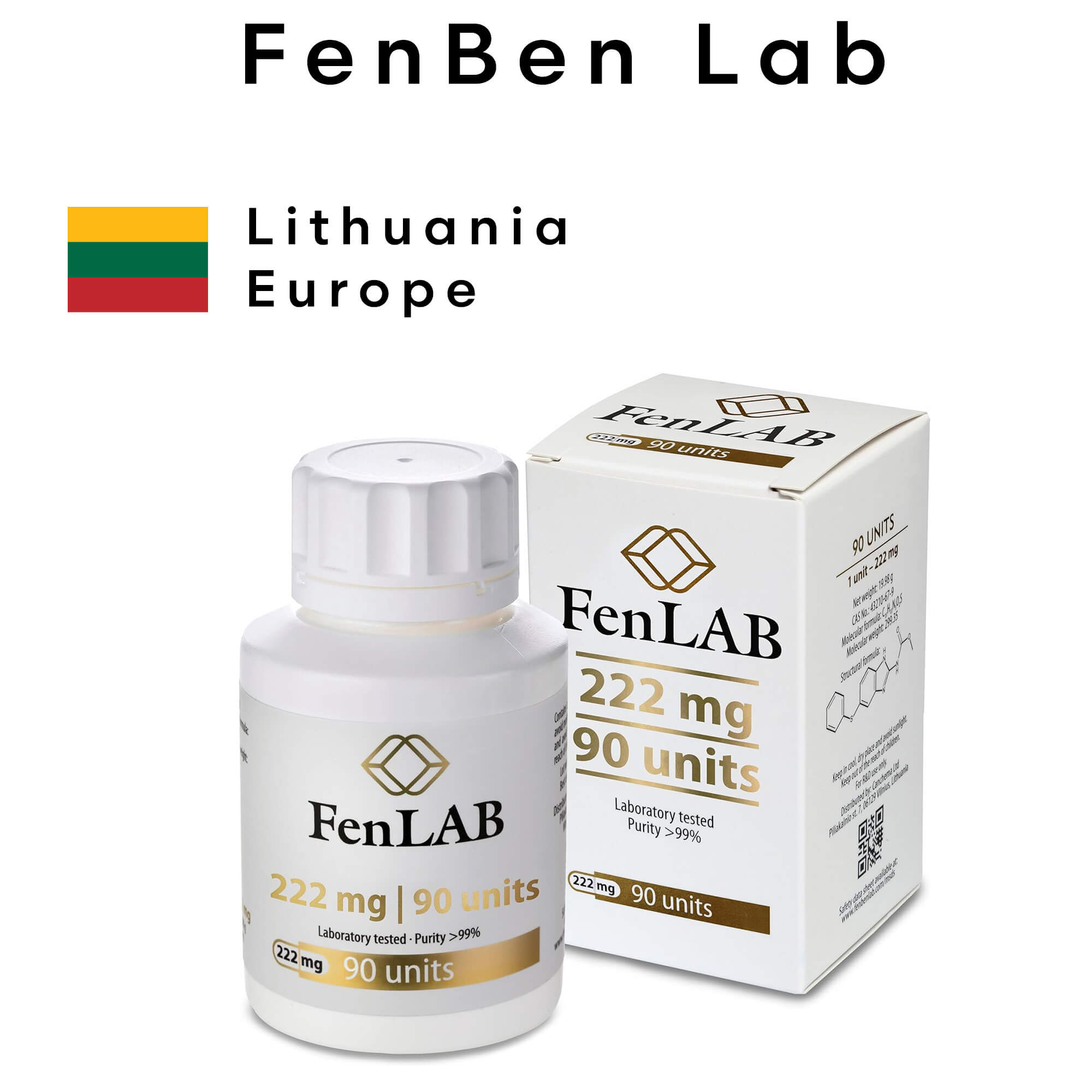Greetings to all. Today, we will dive a little into the world of Fenbendazole and what lies beyond the simple sale of bottles with capsules. As we’ve all noticed, the market has seen a significant increase in companies that produce or sell Fenbendazole over the past year. We decided to explore the emergence of countless new companies and sub-companies of larger sellers. Our review begins with the company Fenben Lab, which is located and registered in Lithuania.

General Overview
The company has established itself well in the Fenbendazole market as a sales leader, operating for more than 20 years. Based on their funnel of reviews from clients, Fenben Lab enjoys a high customer rating—4.8 out of 5.

They offer phone support and email support, though they lack a live chat option for quick questions or responses. Customer service is timely and polite.
The company claims to have warehouses in the U.S., making delivery more convenient and faster for their clients, as all shipments are sent within the U.S.
Product’s Purity
However, while investigating the company, we came across some contradictory information, specifically a report by Dr. William Makis MD, who claims that the purity of Fenben Lab’s Fenbendazole is 56%.
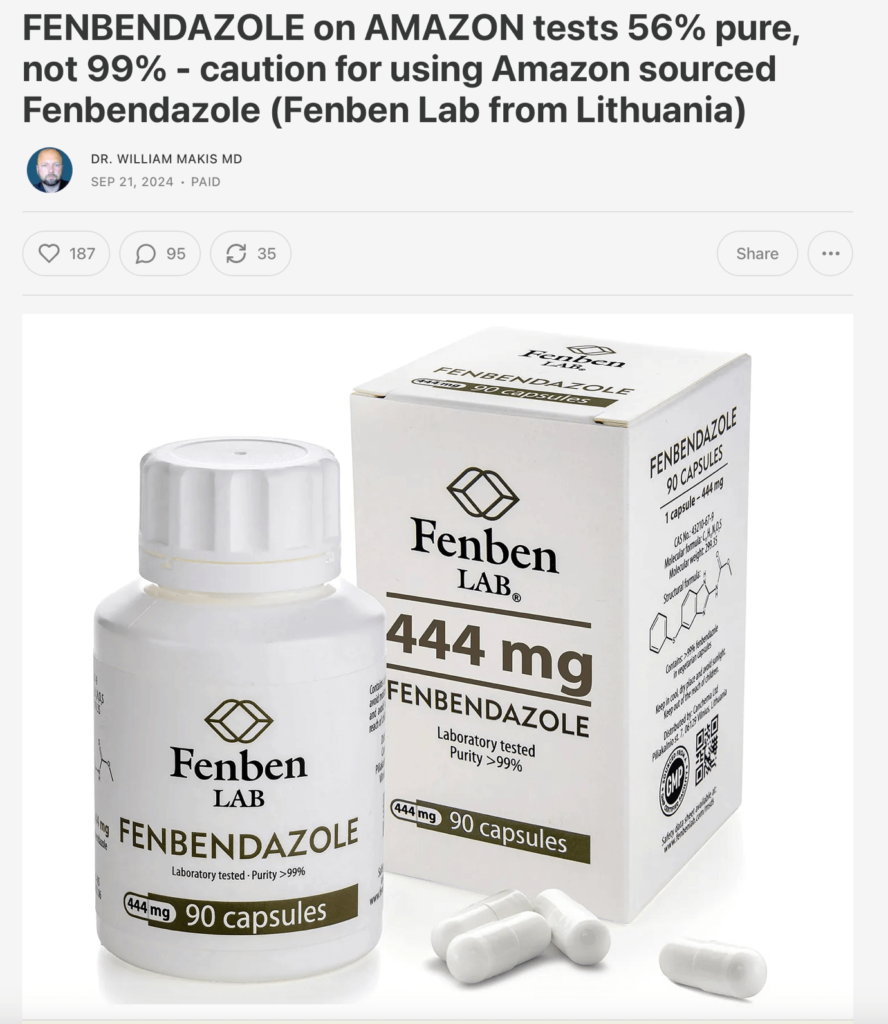
We cannot confirm or deny this fact, but after researching further, we concluded that Dr. Makis likely did not verify the source of his information. Fenben Lab claims on their website that the purity of their Fenbendazole is 99.6%.
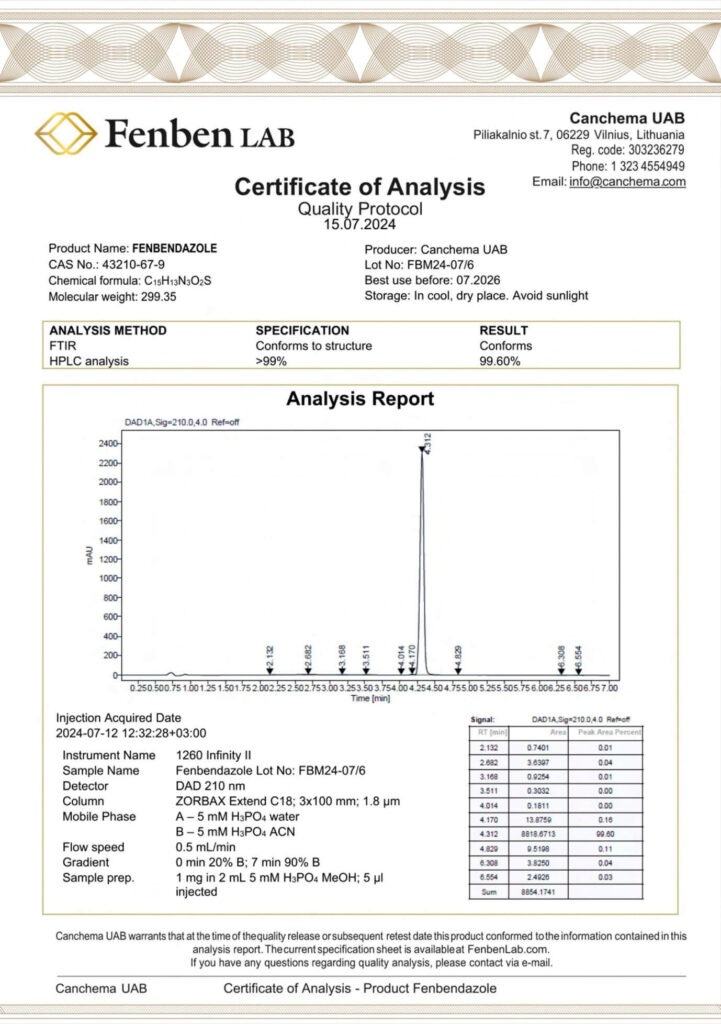
The only doubt arises from the fact that Fenben Lab issued its own certificate of quality, which seems somewhat questionable. Other companies typically conduct purity analysis of their Fenbendazole in independent laboratories, but Fenben Lab’s certificate cannot be found on their website or anywhere else.
Additionally, the topic of Fenbendazole purity as low as 7% often surfaces on social media platforms: https://www.cancerthinker.com/research/infamous-happy-healing-marketing-strategy.
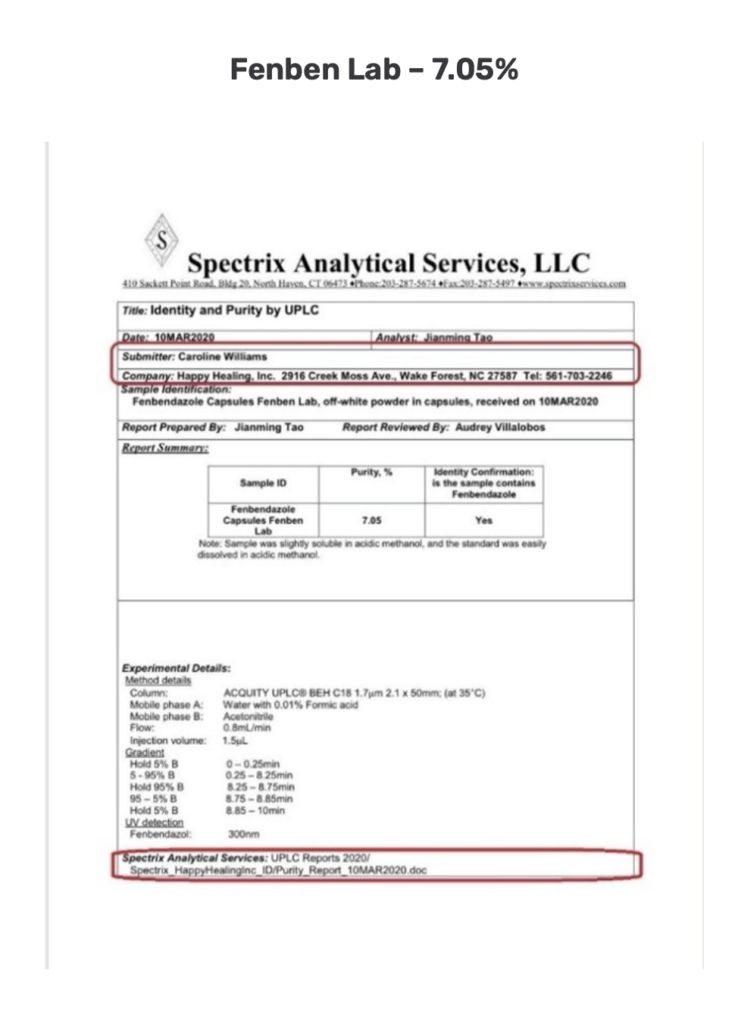
On the other hand, we’ve also found debunking articles from other companies regarding paid competitor posts: https://www.facebook.com/sanarelabltd/posts/745748617571399
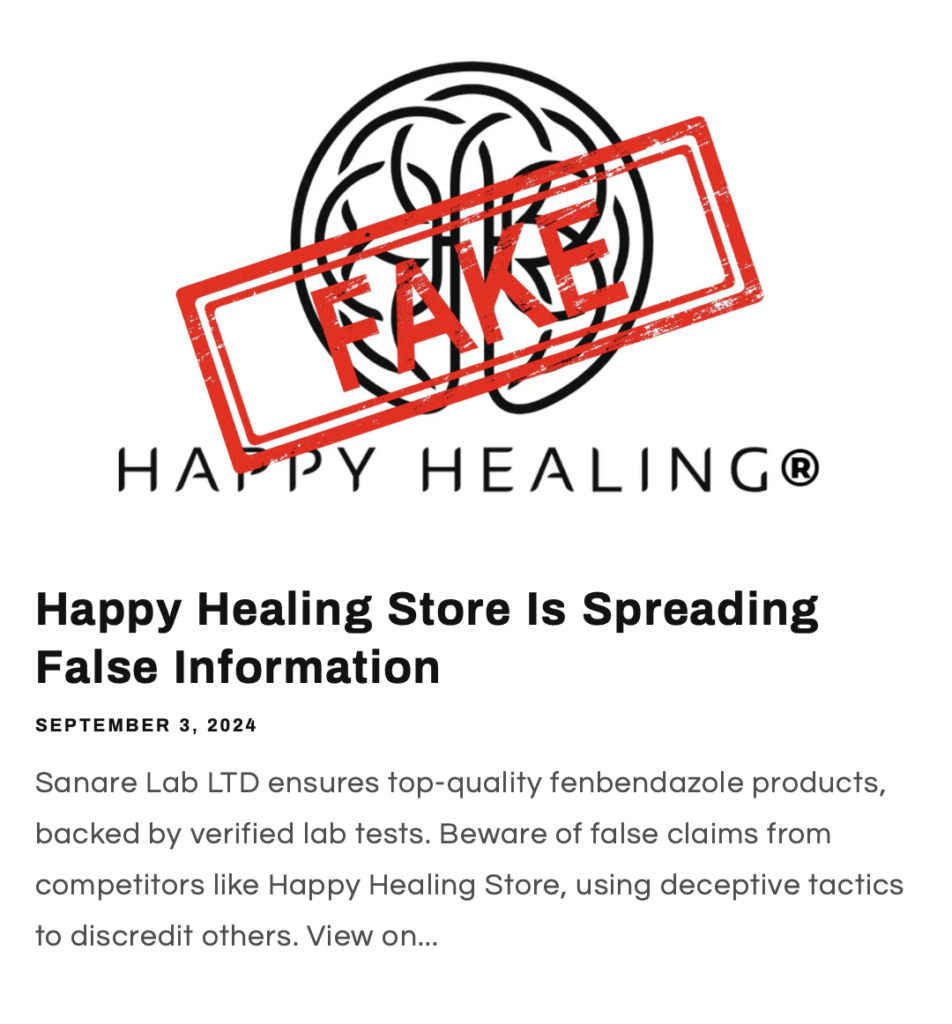
Based on our analysis, we are inclined to believe that articles claiming 7% purity seem more like paid content than independent reviews. Common sense suggests that if their product had such low purity, this information would have come to light, as some customers might have ordered independent testing and publicized the results.
Subcompanies
Essentially, we haven’t told you anything new except… about the different companies that belong to and are part of the same structure as Fenben Lab. Yes, you read that correctly. There are at least five companies (brands) that are directly controlled by Fenben Lab: Naresun, Fenzol, FenbenPro, and Curer Lab.
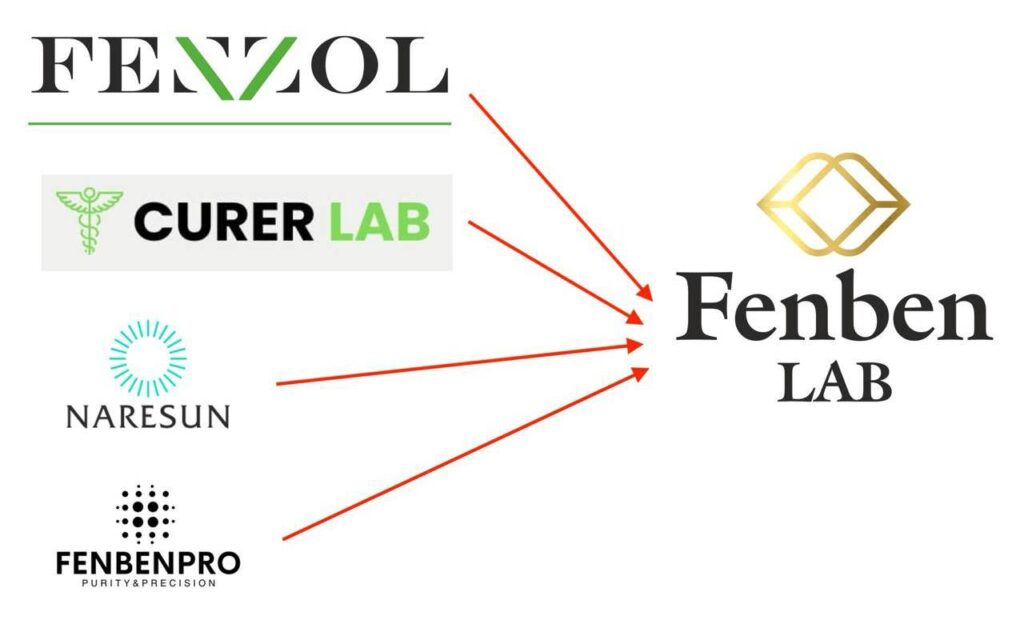
Let’s start with the fact that three out of the five companies are registered in Lithuania, which is strange considering that out of the 15 companies selling Fenbendazole capsules on the market, four are registered in Lithuania.

Moreover, three of the companies are registered in the same city—Vilnius—which is odd since Vilnius is neither an industrial giant nor a hub of chemical or raw material production.
Fenben Lab often forgets to update photos or images on their subsidiary companies’ websites:

For example, they use the same image template of a spoonful of white powder with the same font for their “different” companies.
It seems they sometimes don’t even bother taking different product photos for their various companies, instead using the same templates:
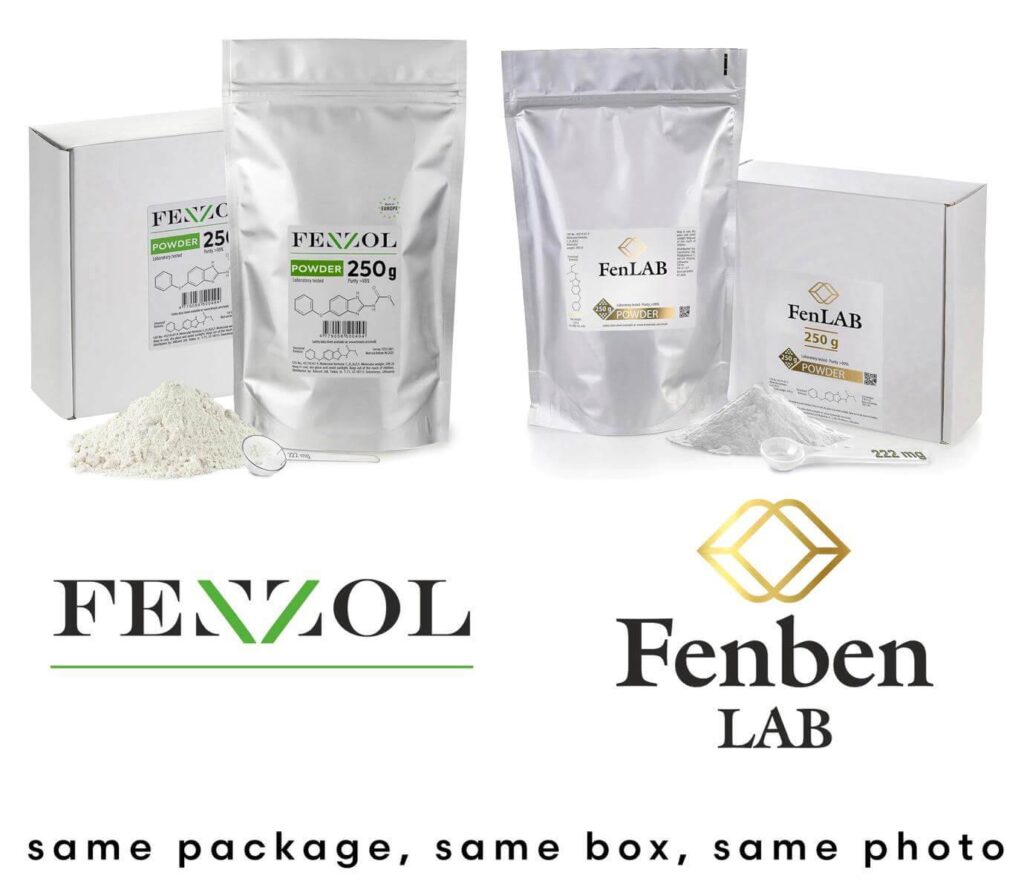
In this case, we see different piles of powder with a spoon, but they forgot to change the packaging; the image is simply mirrored for the customer. It seems Fenben Lab takes their customers for fools by assuming they won’t notice.
It’s also amusing to look at their certificate, which travels from one brand to another.

One template, one text, the same test results, and we’re beginning to doubt the authenticity of these certificates. By changing the text, one can easily alter the numbers, so 99.6% could become 99.9%.
Naresun, registered in the U.S. (perhaps the owners decided to change something radically in their business model), lists their address as Naresun.

But in Naresun’s certificates, Fenben Lab cites Adisant LTD, which is registered in Lithuania.

However, the inconsistencies do not stop there:
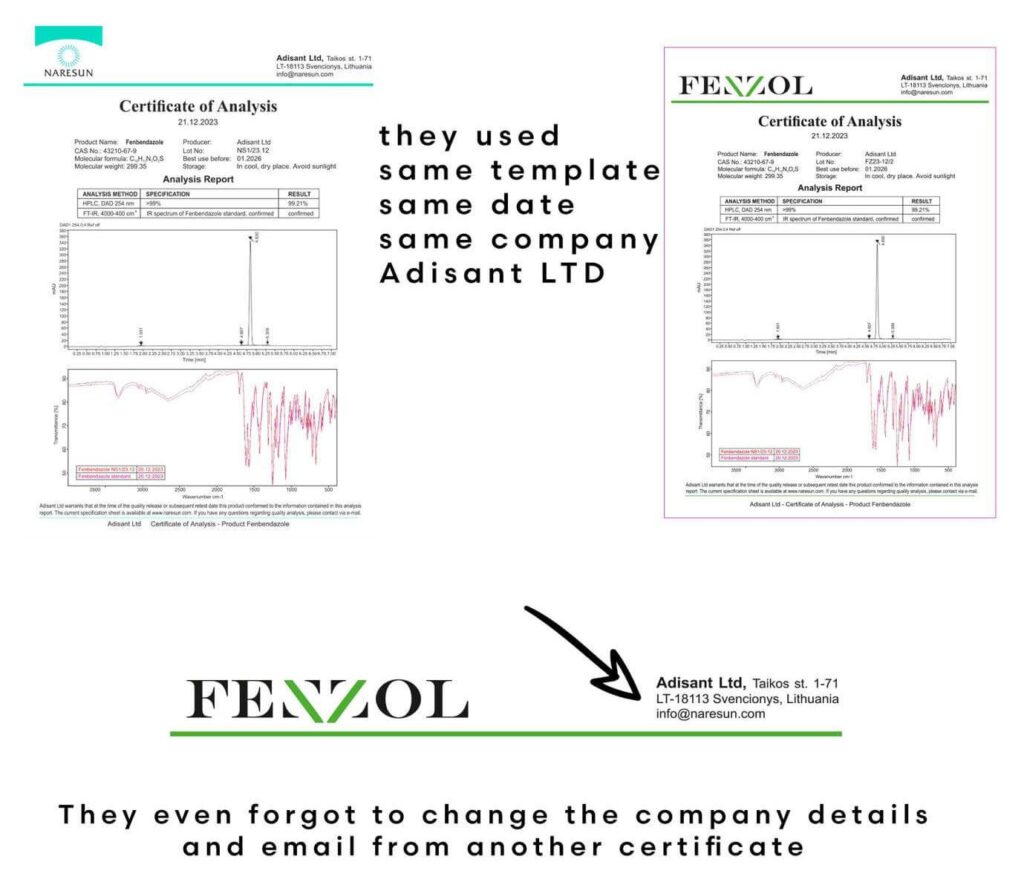
While creating fake certificates, Fenben Lab forgot to change the email on the certificate, so the company Fenzol has Naresun’s email. They either forgot or didn’t bother (since they assume all their customers are fools) to change the date. Both certificates are identical: December 21, 2023, with a purity of 99.21%, and all other research data matches exactly. This is blatant negligence in their work and attitude toward customers, so the 7% purity claim may not seem as far-fetched as it initially appeared, given that the company copies certificates without changing the data and lacks results from independent laboratory tests.
If we hadn’t found the information about their subsidiaries, we would have likely rated Fenben Lab as a B-tier manufacturer. But considering all of this, we give them a C rating.
As for the reason behind all of this, the answer is simple: greed and deceiving customers. Fenben Lab’s logic appears to be that they want customers entering the Fenbendazole market to see five “supposedly different companies” and make a purchase from one of them. Is this beneficial to Fenben Lab? Definitely yes. Is it beneficial to a person trying to find or buy a quality product? No! Fenben Lab misleads people by creating fake companies, fake purity certificates, and not testing their product in real laboratories. Their tests, unfortunately, are done with the click of a keyboard on yet another template certificate.
Conclusion
Fenben Lab, a prominent player in the Fenbendazole market, raises concerns about its business practices. While they claim high product purity, offer reliable customer support, and have excellent reviews, several inconsistencies emerge, such as self-issued certificates, duplicate product images across supposedly different brands, and questionable purity reports. Additionally, the company operates several subsidiary brands that appear to be part of a strategy to mislead consumers. These factors lead to doubts about their transparency and product authenticity, raising concerns about the quality of their offerings.

